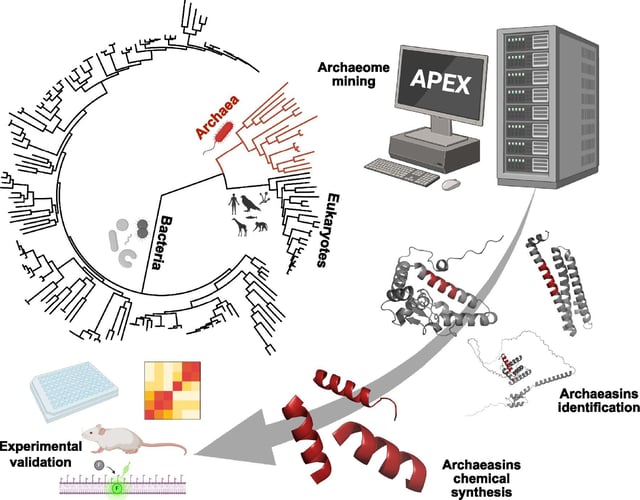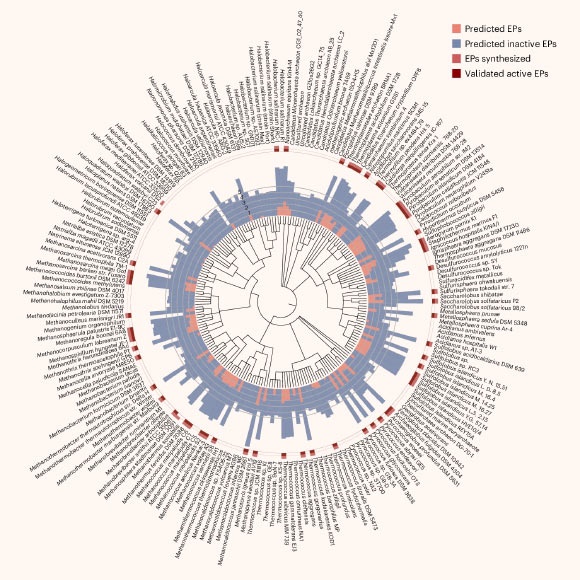Overview
- Using an improved AI tool called APEX 1.1, researchers scanned proteins from 233 Archaea species and identified over 12,000 candidate peptides dubbed archaeasins
- Laboratory tests of 80 archaeasins showed that 93% inhibited at least one drug-resistant bacterial strain in vitro
- Three archaeasins advanced to animal models where a single dose halted infection and one matched the efficacy of the last-resort antibiotic polymyxin B
- Chemical analyses suggest archaeasins kill bacteria by disrupting internal electrical signaling rather than targeting cell membranes
- The team intends to refine AI-driven structural predictions and assess long-term safety and efficacy as a prelude to human clinical trials

